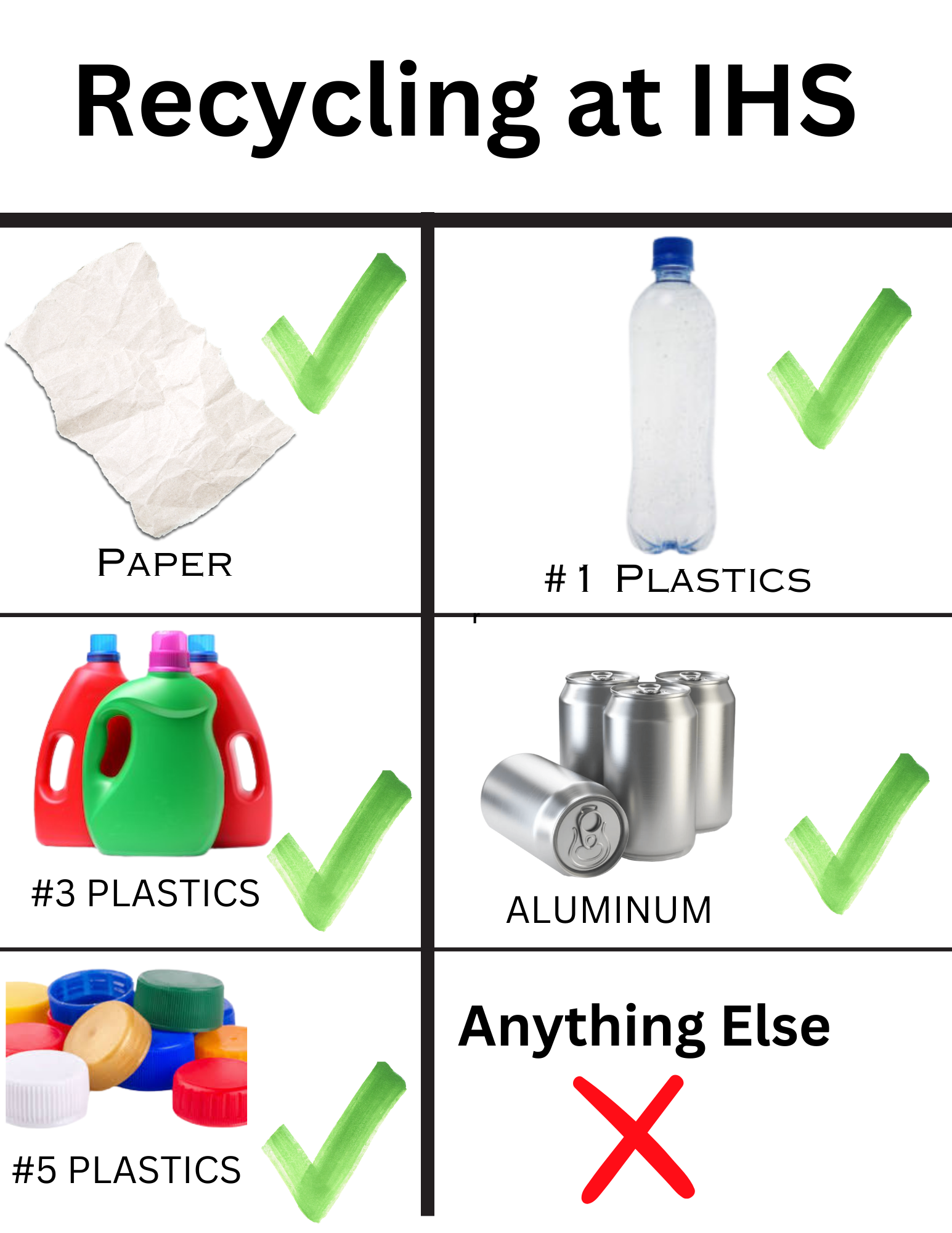The IHS students representatives to the Board of Education have thus far attended four Board Meetings this school year. During that time they have scheduled lunch check-ins with Mr. Trumble every other week to discuss school related issues. Over the past several months, the student representatives have attempted to tackle several challenges facing both the district and the high school.
Firstly, the representatives have researched the recent changes to school lunches. As discussed in this issue’s editorial, a number of alterations have been made to the menu due to a combination of new federal nutritional regulations and district initiatives to increase equity in access to high quality food. For example, from December onwards, all high school students will be eligible for a free breakfast and lunch every day.
The student representatives have also investigated recycling at IHS. The high school has a number of recycling bins but student misuse and the resulting contamination have forced custodians to combine the trash and recycling. In order to combat this issue, the student representatives are working with administrators to potentially implement a labeling campaign that clearly outlines what objects are acceptable for recycling. Additionally, the representatives would like to create lids for recycling bins in order to discourage students from tossing in whole trays of food and other large items.
A third issue discussed at the November 14 monthly voting meeting of the Board was the changes in middle school math over the last few years. In years past, sixth grade students could opt to take an accelerated math course, which tracked them for Algebra 1 in eighth grade. Due to concerns about equity and pigeonholing students too early, the district has removed all advanced math options up to eighth grade. At the Board Meeting, superintendent Dr. Luvelle Brown argued that the changes have been made with the best interests of all students in mind, including both high and low academic achievers. The student representatives hope that more informing meetings about this topic will occur in the coming weeks and months.
Lastly, during the November 14 meeting, the student representatives heard a presentation by contractor TetraTech about the expansion of the district’s electric bus fleet. One topic of conversation was a grant from the Environmental Protection Agency which could provide the district an additional fifteen electric buses in 2026. Several financial plans were proposed, with various levels of financial commitment. Some board members expressed concern over unspecific and high cost plans (up to 105 million dollars). They would prefer to pay a fraction of that cost in order to target the very specific goal of enlarging the electric bus fleet and not engaging in other infrastructure improvements for the time being. One concern mentioned several times by the Board was the desire to not increase taxes in order to fund such expenditures. The district has secured permission for the state to borrow money for capital improvements, but borrowing too much could have negative financial consequences.
If any reader has feedback or opinions about these or other topics, they can contact the student representatives: Mukund Gaur ’24, Claire Park ’25, Caedmon Sethupathy ’25, and Lucine Barseghyan ’25. The next Board Meeting after the release of this issue is scheduled for December 12. The meetings are open to the public and any student or staff member is welcome to attend and raise any district related concerns to the Board during public comment.

